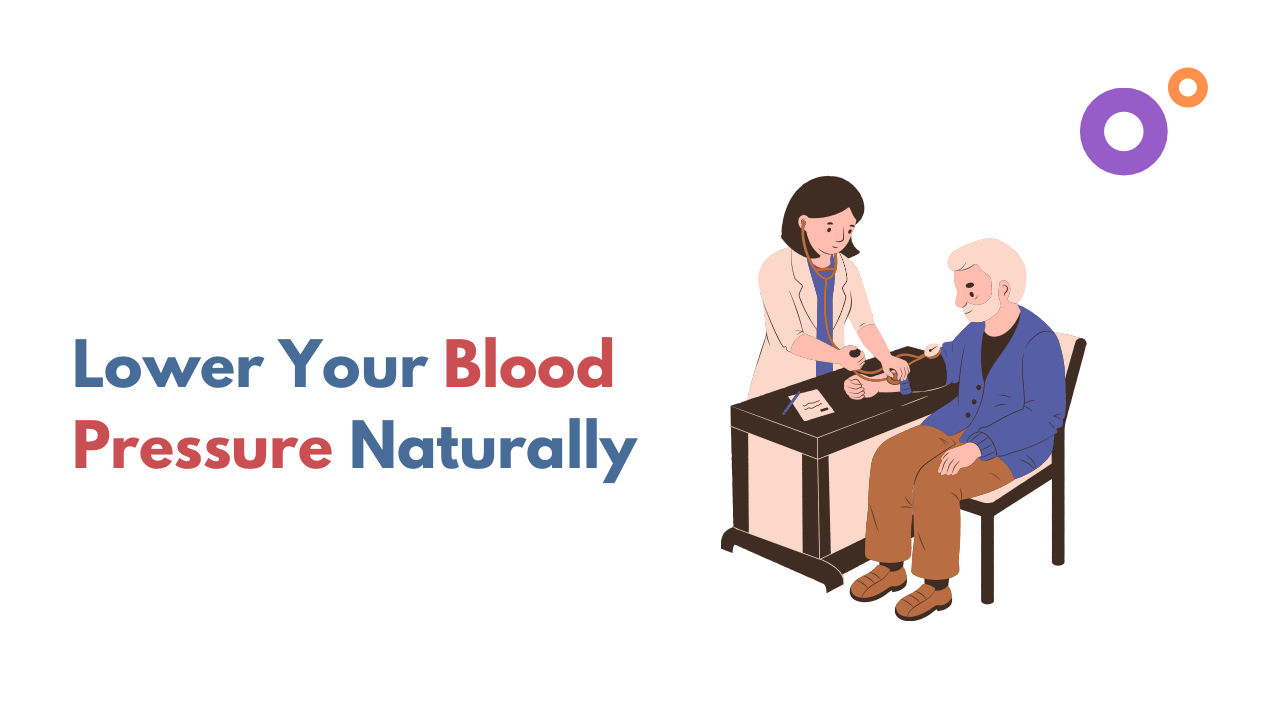
Lower Your Blood Pressure Naturally
High blood pressure raises the risk of heart disease and stroke. Blood pressure lower than 120/80 mm Hg is considered normal. However, it is possible to significantly reduce your risk and the high BP — without requiring medications.
Here are effective ways to naturally lower your blood pressure levels.
Walk and exercise regularly
Blood pressure can be lowered by regular exercise, in fact moderate exercise of 150 minutes per week such as walking or 75 minutes of vigorous exercise like running makes the heart stronger and efficient at pumping blood and lowering the pressure in the arteries. Research shows that even more exercise is beneficial in reducing BP further.
Reduce sodium intake
High salt intake has been linked to high blood pressure and heart issues like stroke. If you are suffering from high BP, reduce your sodium intake especially due to consumption of processed and prepared foods. Swap out these with fresh ingredients and try seasoning with herbs and spices rather than salt.
Reduce alcohol
Drinking alcohol can raise BP along with increasing the risk of chronic health conditions. While some research suggests that low to moderate amounts of alcohol may protect the heart.
Increase intake of potassium-rich foods
Potassium is an important mineral which helps the body get rid of sodium and eases pressure on your blood vessels. To get a better balance of potassium and sodium in your diet, focus on reducing processed foods and increasing intake of fresh, whole foods including vegetables especially tomatoes, leafy greens, potatoes and sweet potatoes, fruit like bananas, avocados, melons, oranges and apricots, dairy such as milk and yogurt, tuna, salmon, nuts and seeds.
Learn to manage stress
Listen to soothing music, meditate or do deep breathing to reduce stress. Both meditation and deep breathing may activate the parasympathetic nervous system by relaxing, slowing the heart rate and lowering blood pressure. Further, when you are stressed, you might indulge in other risky behaviors like drinking alcohol or eating processed foods which adversely affect blood pressure.
Eat dark chocolate or cocoa
Eat small amounts of dark chocolate and cocoa powder as it is rich in flavonoids, plant compounds which causes blood vessels to relax or dilate. Studies have found that flavonoid-rich cocoa may reduce short-term BP in healthy adults.
Lose weight
In overweight people, losing 5% of body weight can make a big difference to improving the health of the heart. A blood vessel does a better job of expanding and contracting, making it easier for the left ventricle of the heart to pump blood. The effect is even greater when weight loss is combined with exercise.
Quit smoking
Every puff of cigarette smoke causes a slight, temporary increase in BP because chemicals in tobacco are a cause to damage blood vessels. Still, since both smoking and high BP increase the risk of heart disease, quitting smoking can help lessen this risk.
Cut added sugar and refined carbs
Not just sugar but— all refined carbs such as white flour cause problems when they convert rapidly to sugar in the bloodstream. A low carb diet reduces systolic and diastolic blood pressure, along with reducing several risks for heart disease.
Eat berries
Berries are packed with polyphenols, natural plant compounds that are good for your heart. Polyphenols can reduce the risk of stroke, heart conditions and diabetes and improve blood pressure, insulin resistance and systemic inflammation.
Eat calcium-rich foods
People with low calcium intake often suffer from BP. Calcium-rich diets do seem to be linked to healthful levels. For most adults, the calcium recommendation is 1,000 milligrams (mg) per day. However, some individuals may require higher amounts. In addition to dairy, eat collard greens and other leafy greens, beans, sardines and tofu.
Eat foods rich in magnesium
Magnesium is an important mineral that helps blood vessels relax. Many people don’t get enough magnesium in their diet so increase intake of vegetables, dairy products, legumes, chicken, meat and whole grains.